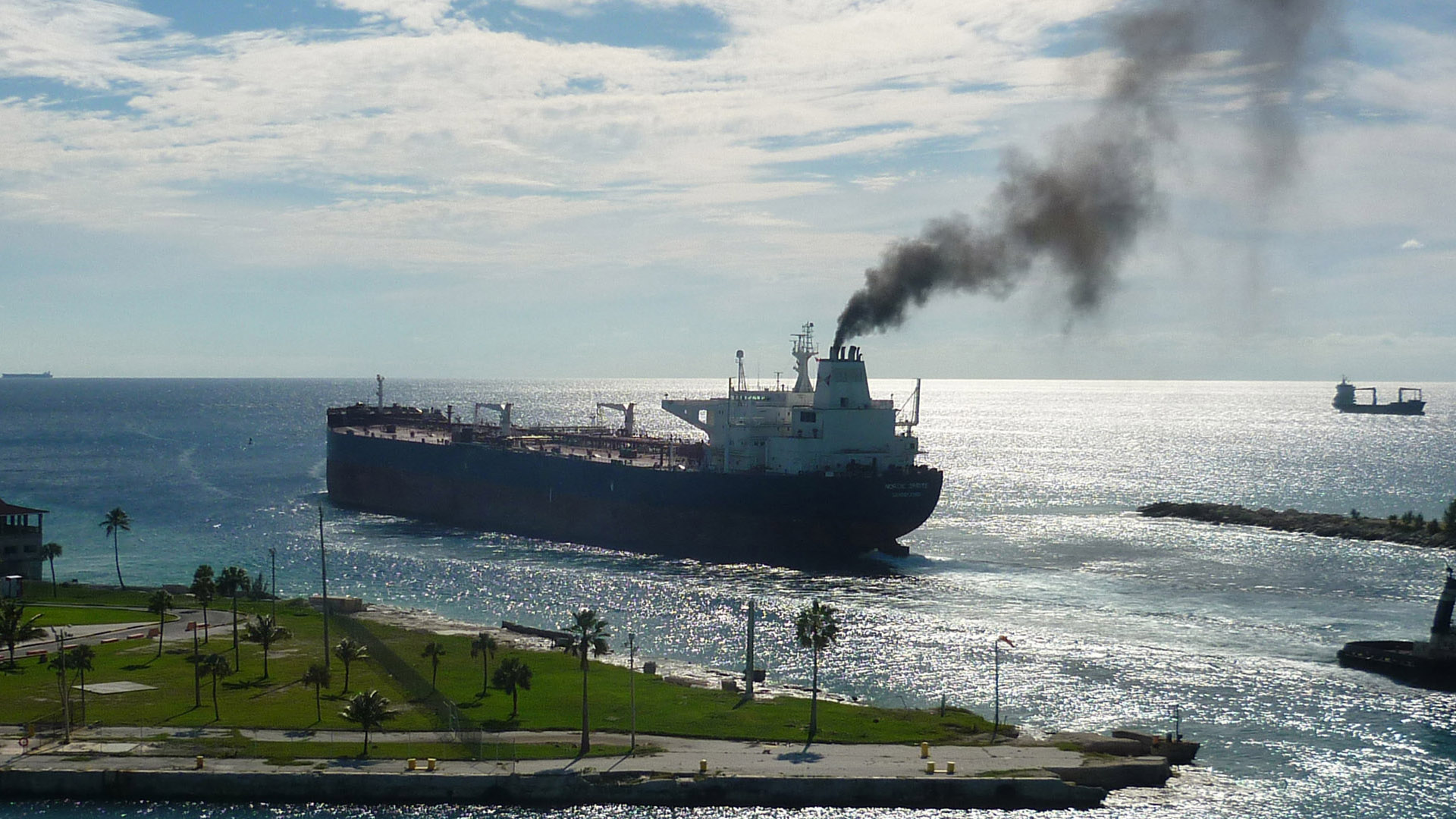
The nature of the modern economy allows us to search for and order goods online and expect them to be at our doorstep in a matter of days. Yet, behind the convenience of many of these purchases lies a heavily polluting industry—shipping. Millions of tonnes of goods including food, medicine, electronics, and textiles are shipped around the world every day, and the shipping industry now accounts for close to 3% of global greenhouse gas emissions.
The International Maritime Organization (IMO), a specialized agency of the United Nations responsible for regulating global shipping, including safety, pollution, and legal compensation issues, has finally made some progress in trying to address the carbon emissions of the global shipping industry.
On April 11 in London, the IMO’s Marine Environmental Protection Committee agreed upon a framework to begin taxing maritime vessels to reduce emissions and aiming to raise $11-13 billion each year to go towards green shipping investments. The Net Zero Framework has yet to be formally adopted, but marks what, to some, is seen as a significant step towards tackling a heavily polluting industry.
The framework drafted amendments to the MARPOL Annex VI international treaty, which governs air pollution from ships and, if adopted this October, will take effect in 2028. It calls for emissions reductions by large maritime vessels and sets out a carbon pricing mechanism. The framework evaluates shipping vessels based on reducing emissions intensity from 4%-30% between 2028 and 2035 (based on a 2008 baseline), and on direct compliance emission reductions, for which offsets, known as remedial units, may be purchased from cleaner ships. Heavier polluters may also offset their emissions by contributing to the soon-to-be established IMO Net Zero Fund, which will contribute to decarbonization efforts and help offset cost increases for developing nations. Should the Net Zero Framework be adopted, all ships weighing 5000GT or more would have to open a GHG Fuel Intensity Registry account by October 2027 to comply.
Not everyone is celebrating
Despite the mild celebrations over making progress on such an important contributor to climate change, negotiations were fraught. The journey to the final framework followed a similar path to many multi-nation discussions on greenhouse gas emissions. Heavy polluters lobbied for laxer regulations while vulnerable island nations advocated for stricter measures.
In these talks, the United States, which is currently being led by an acutely anti-environmental administration, walked out of discussions altogether and threatened reciprocal action should a carbon tax be levied. Petrostates Russia and Saudi Arabia opposed any regulations. Ultimately, Pacific Island nations abstained from the final vote in protest, as they had originally advocated for $150/tonne of CO2, and the final deal included $100/tonne starting in 2028, depending on whether targets are met. However, depending on compliance levels, some ships may be required to pay up to $380/tonne of CO2 until 2030, after which new targets will be established.
The deal also called for investment into alternative fuels, including green hydrogen, ammonia, and sustainable biofuels. However, palm oil is considered a biofuel, and its cultivation has heavily contributed to deforestation and pollution. In Indonesia, orangutans have suffered significant habitat loss due to forests being clear cut to make room for vast palm oil plantations. Green groups have criticized this measure as incentivizing increased production of palm oil, which still contributes to climate change, if from a different angle than shipping.
Similar to many international climate conferences, the IMO talks were contentious, with economic interests pitted against existential threats. For the most vulnerable nations, the summit’s outcome seemed too accommodating to major polluters to reach the ambitious goals established by the Paris Climate Agreement.
This framework aims for a net-zero by 2050 target, but critics doubt its efficacy. Carbon trading schemes often prioritize purchasing offsets over actual emission reductions. The nonbinding nature of most climate agreements leaves little room for enforcement mechanisms beyond a fine. Still, given the existential threat that climate change poses, getting delegates from around the world into a room to negotiate is invaluable, for compromise is better than radio silence.
(Photo credit: freeimageslive/silvervoyage)
Sarah Sakeena Marshall, Data Assistant